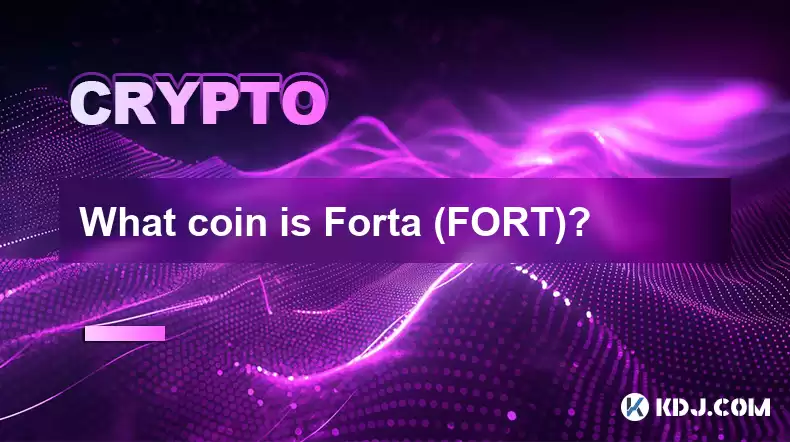-
 Bitcoin
Bitcoin $115000
0.12% -
 Ethereum
Ethereum $3701
4.50% -
 XRP
XRP $3.081
2.99% -
 Tether USDt
Tether USDt $0.0000
-0.01% -
 BNB
BNB $767.9
1.45% -
 Solana
Solana $169.5
3.13% -
 USDC
USDC $0.9999
0.01% -
 Dogecoin
Dogecoin $0.2106
4.30% -
 TRON
TRON $0.3334
1.62% -
 Cardano
Cardano $0.7564
2.54% -
 Stellar
Stellar $0.4165
0.76% -
 Hyperliquid
Hyperliquid $38.75
0.25% -
 Sui
Sui $3.593
3.00% -
 Chainlink
Chainlink $17.08
3.59% -
 Bitcoin Cash
Bitcoin Cash $573.6
4.35% -
 Hedera
Hedera $0.2508
-0.84% -
 Avalanche
Avalanche $23.07
6.46% -
 Ethena USDe
Ethena USDe $1.001
-0.02% -
 Litecoin
Litecoin $120.8
8.17% -
 UNUS SED LEO
UNUS SED LEO $8.943
-0.32% -
 Toncoin
Toncoin $3.400
-5.60% -
 Shiba Inu
Shiba Inu $0.00001255
1.54% -
 Uniswap
Uniswap $9.908
6.32% -
 Polkadot
Polkadot $3.718
2.10% -
 Monero
Monero $303.0
-0.74% -
 Dai
Dai $0.9999
-0.02% -
 Bitget Token
Bitget Token $4.392
0.91% -
 Cronos
Cronos $0.1403
6.31% -
 Pepe
Pepe $0.00001076
1.13% -
 Aave
Aave $267.2
1.80%
What coin is Forta (FORT)?
Forta Network allows a decentralized community to work together to spot and fix security risks in smart contracts and blockchain protocols using FORT tokens for governance and rewards.
Jan 04, 2025 at 06:52 am

Key Points:
- Forta is a decentralized network for security audits and monitoring of smart contracts and blockchain protocols.
- FORT is the native token of the Forta network, used for various functions within the ecosystem.
- The Forta network consists of a community of auditors, developers, and users who collaborate to ensure the security of blockchain projects.
- Developers can create and deploy detectors to monitor smart contracts and protocols for vulnerabilities.
- Auditors review and verify detectors to ensure their accuracy and effectiveness.
- FORT token holders can stake their tokens to support the network and earn rewards for contributing to its security.
- FORT tokens are also used for governance purposes, allowing holders to vote on proposals that affect the development and direction of the network.
What is Forta (FORT)?
Forta is a decentralized security monitoring platform designed specifically for blockchain networks and smart contracts. It empowers a community of actors to collaborate in identifying and mitigating security risks associated with blockchain protocols.
How Does Forta Work?
The Forta network operates on a three-tiered architecture:
1. Detectors:
Developers create and deploy detectors, which are automated tools that continuously monitor blockchain transactions and events for suspicious activity or vulnerabilities. Detectors can be tailored to specific protocols or smart contracts, allowing for comprehensive coverage of the blockchain landscape.
2. Auditors:
Auditors are individuals or organizations that review and verify the accuracy and effectiveness of detectors. They evaluate the logic, performance, and reliability of detectors to ensure they meet the highest standards of security. Auditors are crucial in maintaining the integrity and trustworthiness of the Forta network.
3. Token Holders:
FORT token holders play a vital role in the operation and governance of the network. They can stake their tokens to support the network and earn rewards for contributing to its security. FORT token holders also have governance rights, enabling them to vote on proposals and participate in decisions that shape the future development and direction of the Forta network.
Use Cases of FORT Tokens:
- Staking: FORT tokens can be staked to support the network and earn rewards for contributing to its security. Staking tokens helps validate transactions, participate in governance, and maintain the stability of the network.
- Governance: FORT token holders can participate in the governance of the network by voting on proposals that affect the development and direction of the project. Proposals can include changes to network parameters, detector standards, and reward distribution mechanisms.
- Fees: FORT tokens may be used to pay for fees associated with using the Forta network, such as deploying detectors or accessing advanced analysis tools.
FAQs:
1. What are the advantages of using Forta?
- Decentralized security monitoring: Forta empowers a community to collaboratively identify and mitigate security risks, reducing reliance on centralized security providers.
- Automated vulnerability detection: Detectors continuously monitor blockchain activity, providing real-time alerts on suspicious behavior or vulnerabilities.
- Comprehensive coverage: Forta supports a wide range of blockchain protocols and smart contracts, ensuring comprehensive security monitoring across the blockchain landscape.
2. What is the future of Forta?
- Expanded network coverage: Forta plans to expand its network coverage to include additional blockchain protocols and ecosystems.
- Advanced detection capabilities: The development of more sophisticated detectors will enhance the accuracy and efficiency of security monitoring.
- Integration with blockchain applications: Forta aims to integrate with blockchain applications, such as DeFi protocols and NFT marketplaces, to provide real-time security monitoring and alerts.
3. What is the value proposition of FORT tokens?
- Staking rewards: FORT token holders can stake their tokens to support the network and earn rewards for their contribution to its security.
- Governance rights: FORT tokens grant holders governance rights, allowing them to participate in decision-making processes that shape the future of the network.
- Potential for appreciation: The value of FORT tokens may appreciate as the demand for decentralized security monitoring services grows.
Disclaimer:info@kdj.com
The information provided is not trading advice. kdj.com does not assume any responsibility for any investments made based on the information provided in this article. Cryptocurrencies are highly volatile and it is highly recommended that you invest with caution after thorough research!
If you believe that the content used on this website infringes your copyright, please contact us immediately (info@kdj.com) and we will delete it promptly.
- Crypto Airdrops: Your August 2025 Guide to Free Tokens & Opportunities
- 2025-08-05 13:45:13
- Luxury Dining Reimagined: St. Regis Singapore & Marriott's Culinary Celebration
- 2025-08-05 13:45:13
- Fancy Farm Picnic: A Sneak Peek at the 2026 US House Race
- 2025-08-05 13:50:12
- Cardano Price, ADA Forecast & Ethereum Price: What's the Buzz?
- 2025-08-05 13:50:12
- Velo Universe, DEX, and DeFi Security: Navigating the Future of Decentralized Trading
- 2025-08-05 09:25:13
- Bitget Wallet Revolutionizes Solana with Gas-Free Transactions: A New Era for DeFi
- 2025-08-05 09:25:13
Related knowledge

What is Chainlink (LINK)?
Jul 22,2025 at 02:14am
Understanding Chainlink (LINK): The Decentralized Oracle NetworkChainlink is a decentralized oracle network designed to bridge the gap between blockch...

What is Avalanche (AVAX)?
Jul 22,2025 at 08:35am
What is Avalanche (AVAX)?Avalanche (AVAX) is a decentralized, open-source blockchain platform designed to support high-performance decentralized appli...

What is Polkadot (DOT)?
Jul 19,2025 at 06:35pm
Understanding the Basics of Polkadot (DOT)Polkadot (DOT) is a multi-chain network protocol designed to enable different blockchains to transfer messag...

What is Litecoin (LTC)?
Jul 23,2025 at 11:35am
Overview of Litecoin (LTC)Litecoin (LTC) is a peer-to-peer cryptocurrency that was created in 2011 by Charlie Lee, a former Google engineer. It is oft...

What is Monero (XMR)?
Jul 21,2025 at 10:07am
What is Monero (XMR)?Monero (XMR) is a decentralized cryptocurrency designed to provide enhanced privacy and anonymity for its users. Unlike Bitcoin a...

How to add indicators to Ethereum chart on TradingView?
Jul 19,2025 at 07:15am
What Is an Ethereum Chart on TradingView?The Ethereum chart on TradingView is a visual representation of the price movement of Ethereum (ETH) over a s...

What is Chainlink (LINK)?
Jul 22,2025 at 02:14am
Understanding Chainlink (LINK): The Decentralized Oracle NetworkChainlink is a decentralized oracle network designed to bridge the gap between blockch...

What is Avalanche (AVAX)?
Jul 22,2025 at 08:35am
What is Avalanche (AVAX)?Avalanche (AVAX) is a decentralized, open-source blockchain platform designed to support high-performance decentralized appli...

What is Polkadot (DOT)?
Jul 19,2025 at 06:35pm
Understanding the Basics of Polkadot (DOT)Polkadot (DOT) is a multi-chain network protocol designed to enable different blockchains to transfer messag...

What is Litecoin (LTC)?
Jul 23,2025 at 11:35am
Overview of Litecoin (LTC)Litecoin (LTC) is a peer-to-peer cryptocurrency that was created in 2011 by Charlie Lee, a former Google engineer. It is oft...

What is Monero (XMR)?
Jul 21,2025 at 10:07am
What is Monero (XMR)?Monero (XMR) is a decentralized cryptocurrency designed to provide enhanced privacy and anonymity for its users. Unlike Bitcoin a...

How to add indicators to Ethereum chart on TradingView?
Jul 19,2025 at 07:15am
What Is an Ethereum Chart on TradingView?The Ethereum chart on TradingView is a visual representation of the price movement of Ethereum (ETH) over a s...
See all articles

























































































